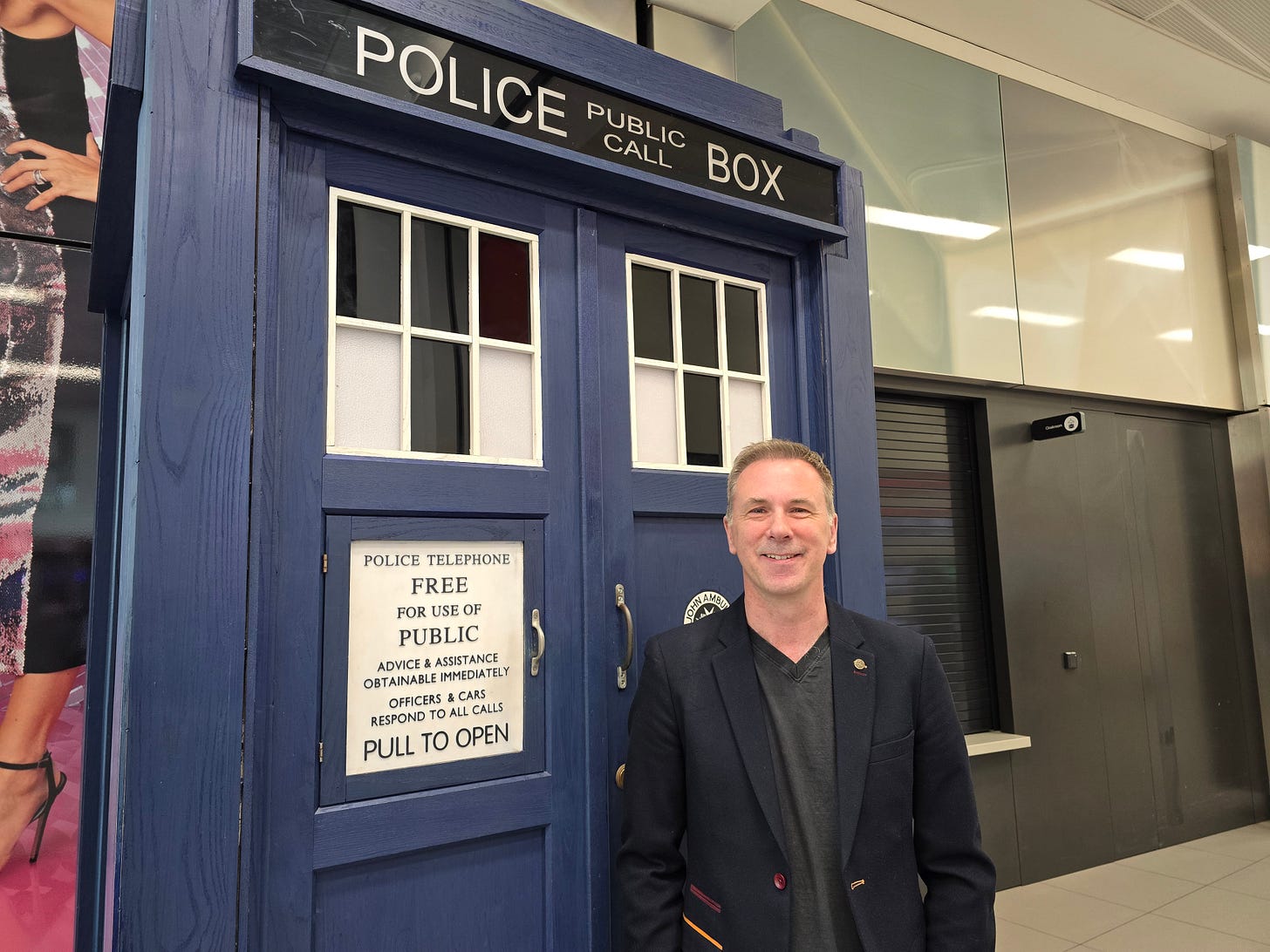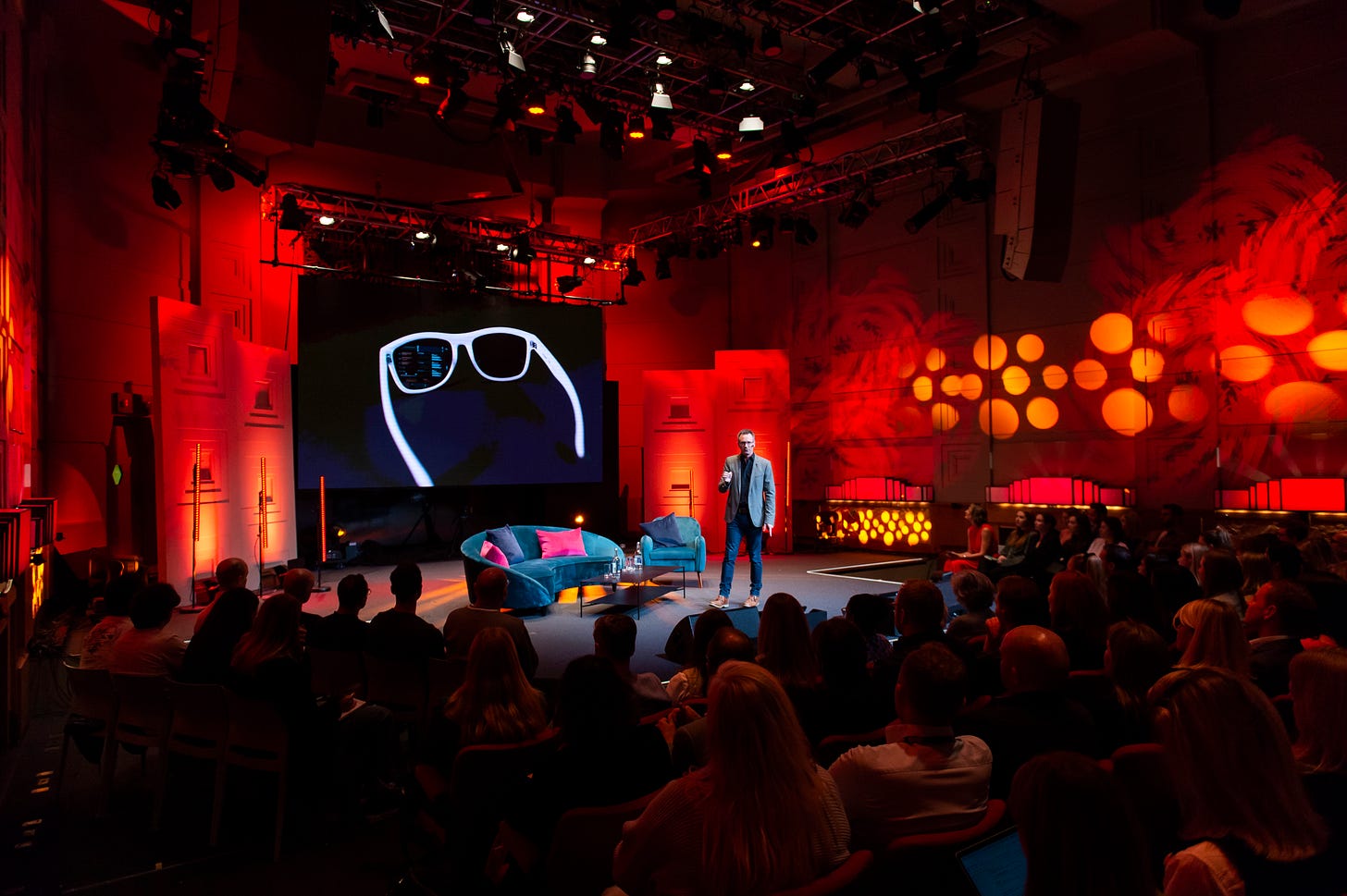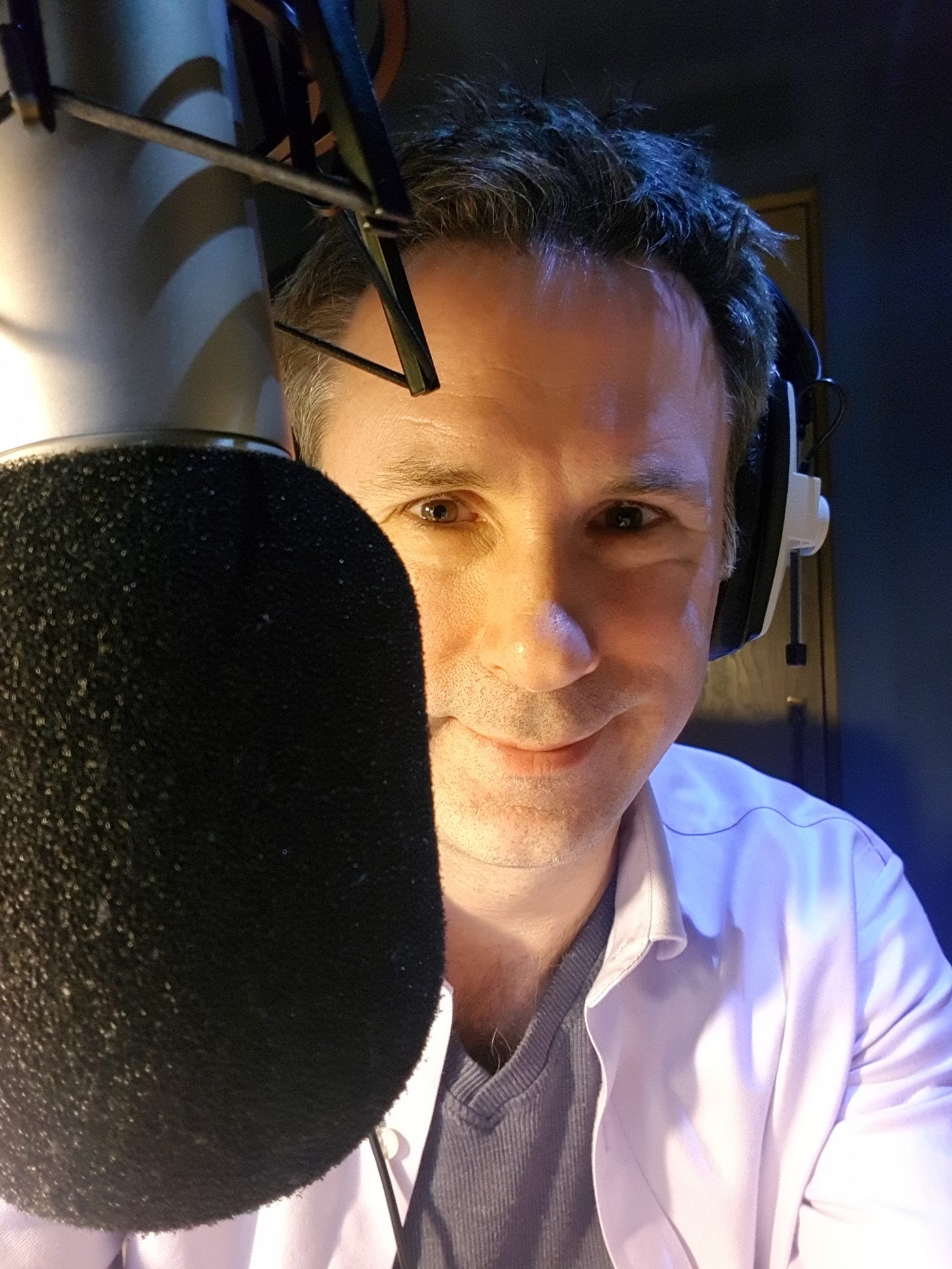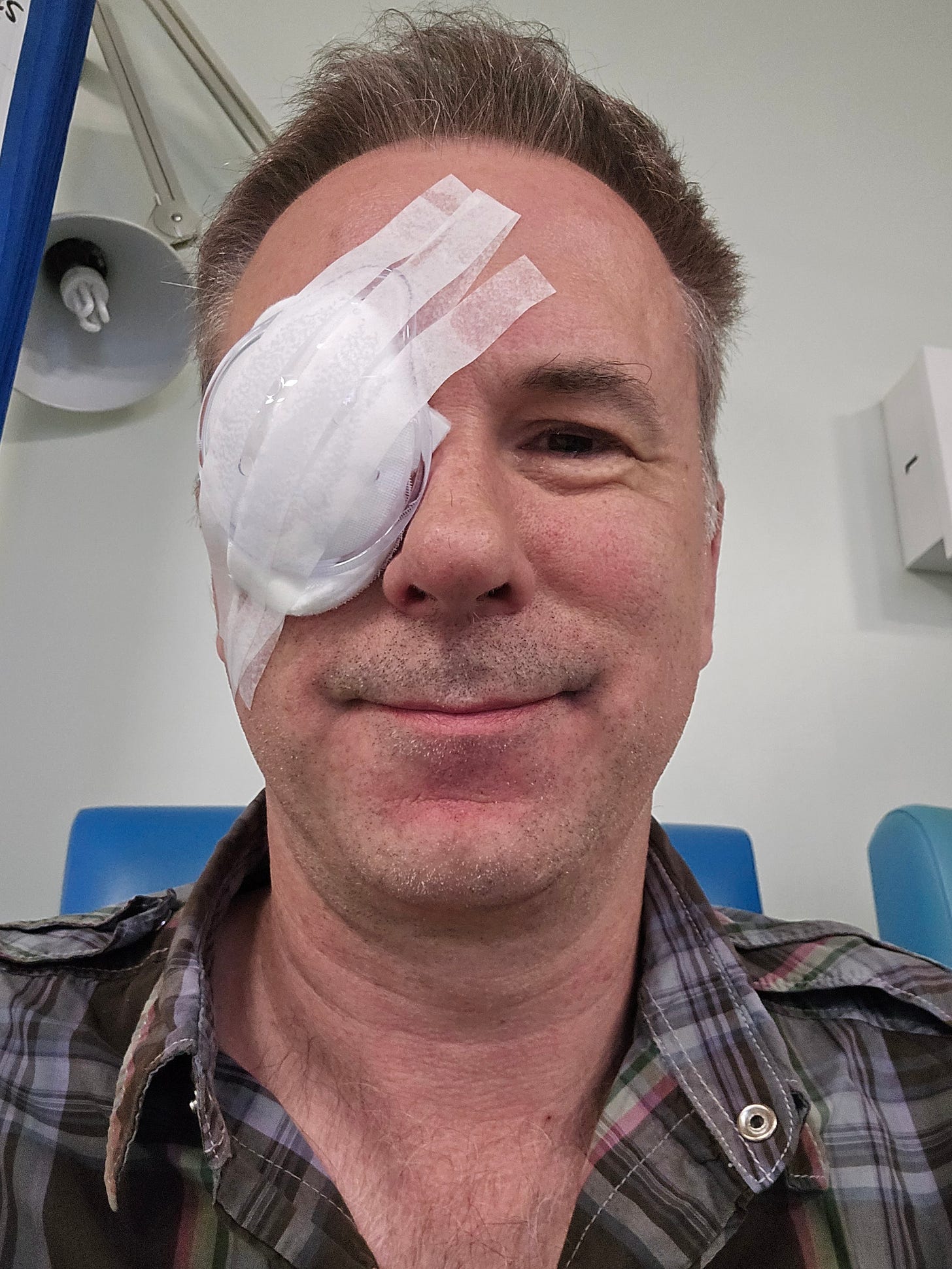It’s the first thing everyone asks me these days. I wish I could give you a definitive answer - part of me wishes I could give myself a definitive answer. But I’ve been advised not to commit to anything straight away. That being said, I am going to lift the lid on what the future may hold for me. And the exciting thing about having more than 20 years under my BBC belt is the sheer amount of stuff I am now able to do.
An institutional crisis
As many of you will know, working for one employer for decades is a hell of a safety net, a very comfortable situation to be in, and terrifying when it ends. However, a wise person told me recently that terror and excitement are actually the same thing, chemically speaking. The same hormones, the same feeling - it just depends on how you interpret it.
My intellect chooses to frame those stomach-clenching moments as excitement.
My lizard brain often has other ideas.
But while the two sides of that internal debate rage, usually in the first waking hour of the morning, let’s look at the evidence.
I am incredibly lucky. I have more than 30 years experience in broadcasting, more than 20 as a BBC journalist, as a keynote speaker, storyteller, interviewer and, as it happens, a media coach.
And that means I’ve been having a lot of very encouraging discussions about where I could apply myself and my knowledge next. And so, although it would be improper to talk details, here are some of the places where I might pop up soon…
On-stage
As well as my part-time job at the BBC, I’ve also been a keynote speaker, event host and panel chair for more than two decades.
I love it.
Actually engaging with a live audience, and hearing their reaction, is properly thrilling.
Again, I’m so lucky to be able to tell the stories of my adventures, and draw on the experience of reporting on hundreds of tech successes and failures, and the rise and fall of whole tech empires.
I’ve spoken about the Workplace of the Future to the likes of O2, Vodafone, Intel, Virgin, BT, and SAP. I've discussed Digital Transformation with more industry associations than I thought there were industries. I’ve taught teachers about AI in the classroom, doctors about AI in healthcare, and I’ve opened events with stories of future foods, robot malfunctions and political data manipulation.
So if you’re going to an industry event soon, you never know, I might see you there. And in fact, since now seems to be an excellent time to put together a new showreel(!), here’s a short taster of me in action, in case you want to know what to expect (sorry about the bouncing).
On-air
I’m loving my tech section on the BBC’s Morning Live programme. For a start, live TV is always full of energy, so much fun, and it brings out the mischief in all of us.

The team are lovely, really experienced, and they do feel like a family. Plus - I don’t know what your work team briefings and debriefings are like, but the ML post-broadcast meetings are conducted with an almost perfect balance of forensic analysis, and positive encouragement.
If stuff went well, everyone is individually mentioned. If stuff went wrong, it’s the team that takes the hit. Making live TV is hard, and this team properly know their onions.
Away from that, I’d love to get a new programme off the ground, but that’s not a quick thing. There are, however, a couple of very promising discussions going on that sound really exciting. I will keep you posted.
But there’s more to my vision than just - vision.
I started my career in radio, and I love the audio medium. It’s incredibly personal - you’re with your listener in their most private moments and you really can form a seemingly one-to-one bond with your audience.
Feels like I should be doing something in that space, doesn’t it..? Especially since there’s this new concept called a “Pod Cast” - don’t know if you’ve heard of it, but it does seem like it might catch on…
Stagecraft training
Without really realising it, I’ve been training people to give good interviews for 30 years. Every time I’ve put someone on-camera or on-mic I’ve wanted to get the best out of them, and so I’ve helped to relax them, and to organise their thoughts. I’ve coached them to tell their story, and explain their big idea in the best, most news-friendly way.
And when I myself have stood on stage, I‘ve been learning how to win over audiences, how best to tell a story, and how to be memorable - for the right reasons.
I’ve seen amazing keynote speakers in action, and I’ve attended events that have fallen flat. Honestly, how many industry gatherings have you been to which have been opened by a CEO who doesn’t want to be on stage, reading a script written by someone else, and killing the atmosphere in the first 5 minutes?
Now is my chance to pass on what I’ve learned to others. Again, conversations are happening with some strategic communication agencies which will hopefully allow me to assist a new generation of public speakers and interview guests.
Try things, fail fast
The next few months are my chance to try new stuff and see what works. And that includes my own creative ventures - things that might pop up on social media, for example. But what should I try? And how long do I try each thing for?
Well, to answer that, I’ll need to put into practice something I’ve learned from all the startups and entrepreneurs I’ve met along the way. Namely - Fail Fast.
In a nutshell, this means trying rough and ready versions of your ideas, and finding a way of testing, as soon as possible, whether they work. This should save you time and money, preventing you from perfecting the wrong thing, enabling you to make tweaks along the way, or cutting your losses early.
It’s obviously easier said than done, and in some ways flies in the face of the way many founders have operated - they’ve had an idea, pursued it passionately, believed in it, defended it, poured their heart, soul and bank balance into it, and seemingly brought it into being by sheer force of will.
It’s a romantic notion, and it makes for a great success story. The problem is, you only hear about the successes. For every successful stockmarket flotation, there are hundreds of ideas and founders that sank without a trace.
In fact one question I’ve asked many founders I’ve interviewed is - what makes a good entrepreneur? I remember one such CEO telling me that Venture Capitalists don’t just invest in the idea - they also invest in the person behind it. The right founder has to be committed, and have a plan, sure, but they also need to show that they can cope with the plan changing if necessary, and that they have a way to measure when to change course.
So what does Fail Fast mean for me? I could try a lot of different ideas, for example, on social media, but I also need a good way of measuring what works. Which raises questions like:
What counts as success? Is it one viral social clip? Is it a run of ten?
How long do I try something for?
How many different ideas do I try at once?
Excellent questions, Spen. When I get the answers, I’ll let you know.
Emerging blinking into the light
It’s been a hell of a month. Scrub that. It’s been a hell of a year. From the April 2024 flood that destroyed my downstairs, via a random eye condition that turned my right eyeball into a cataract farm, to the cancellation of Click which has taught me so many sad things about how big corporations can treat people, and even their much loved brands, like commodoties.
But finally, my Annus Horribilis has come to end.
At least, I hope it has. It would be lovely if it was just one horrible Annus. The last thing you need is one bad Annus bleeding into the next, and so I hope it has been capped, and the sun will shine out of the next one.
The closing of the Annus was marked by a very successful cataract op - I documented the whole thing on the socials, which genuinely seemed to have proved helpful for those in a similar situation.
If you’d like to see the whole journey, here are a couple of highlights (namely the immediate post-patch commentary and a not-too gory eye unveiling).
In summary - didn’t feel a thing, now feel great, and can read number plates again. My long-distance vision is back, baby, just in time to focus on the future.












Another good article, and I concur with David D, a great read.
On a separate note, have you connected on LinkedIn with all those people you've interviewed over the last 20 years? If not, it maybe worthwhile as they may be a great source for getting some work.
Have you developed any of your own groundbreaking tech ideas over the past 20 years? Or just any things you just really want to try building?